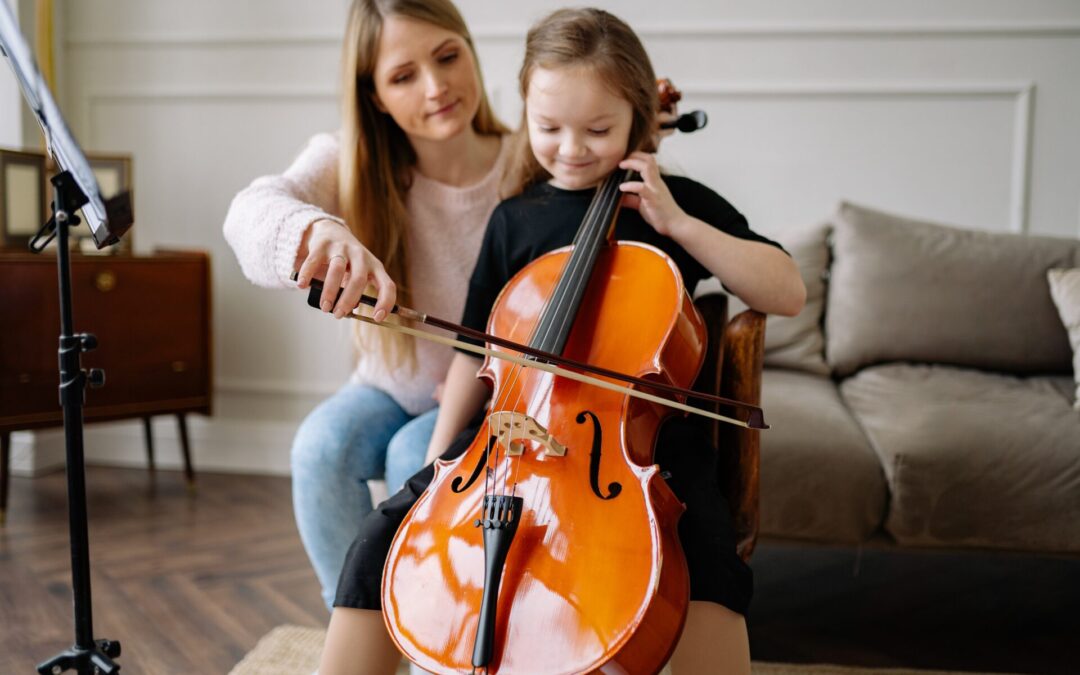Music has a profound impact on our emotions, and for children, it can serve as a powerful tool for self-expression, communication, and overall well-being. Music therapy activities provide children with a creative outlet to explore their feelings, develop social skills, and enhance cognitive abilities.
In today’s blog, we will delve into a range of music therapy activities specifically designed for kids, promoting emotional regulation, self-confidence, and a deeper connection with themselves and others.
1. Musical Instrument Exploration
Introduce children to a variety of musical instruments, such as drums, xylophones, shakers, or keyboards. Allow them to explore the instruments freely, experimenting with sounds, rhythms, and melodies. Encourage children to express their emotions through the music they create, whether it’s playing fast and loud to release energy or slow and gentle to evoke a sense of calmness. This activity promotes sensory exploration, self-expression, and fine motor skills development.
2. Songwriting
Songwriting is a creative and introspective music therapy activity that allows children to express their thoughts, emotions, and personal experiences. Provide paper, pencils, and access to musical instruments if available. Encourage children to write their own lyrics and compose melodies that reflect their feelings or tell a story. This activity enhances language skills, creativity, and emotional processing, empowering children to find their unique voice.
3. Musical Freeze Dance
Musical freeze dance is an enjoyable and interactive music therapy activity that promotes physical movement, self-regulation, and social interaction. Select a variety of songs with different tempos and moods. Play the music and invite the children to dance freely. When the music stops, they must freeze in their current position. This activity encourages children to listen attentively, follow instructions, and express themselves physically through dance.
4. Guided Imagery and Music
Guided imagery and music is a calming and introspective music therapy activity that helps children relax, focus, and tap into their imagination. Play instrumental music with soothing melodies and guide the children through a visual journey by narrating a calming story or describing a peaceful scene. Encourage them to imagine the sights, sounds, and emotions associated with the music. This activity promotes mindfulness, relaxation, and creativity.
5. Musical Emotion Charades
Musical emotion charades is a dynamic and expressive music therapy activity that encourages children to connect emotions with specific sounds and movements. Choose a range of different musical pieces representing various emotions, such as happiness, sadness, anger, or excitement. Ask children to listen to the music and express the emotions they perceive through their body movements and facial expressions. This activity enhances emotional recognition, empathy, and nonverbal communication skills.
6. Group Singing and Rhythm
Group singing and rhythm activities foster a sense of unity, collaboration, and self-confidence. Choose familiar songs with catchy melodies and encourage children to sing along together. Introduce simple percussion instruments like tambourines or maracas, and invite them to join in the rhythm while singing. This activity promotes social bonding, language development, and coordination skills.
Conclusion
Music therapy activities provide children with a powerful and engaging platform to explore their emotions, enhance self-expression, and develop vital life skills. Whether through instrument exploration, songwriting, musical freeze dance, guided imagery and music, musical emotion charades, or group singing and rhythm, music therapy empowers children to connect with themselves and others on a deeper level. By harnessing the therapeutic power of music, children can find solace, joy, and a renewed sense of well-being.


Recent Comments